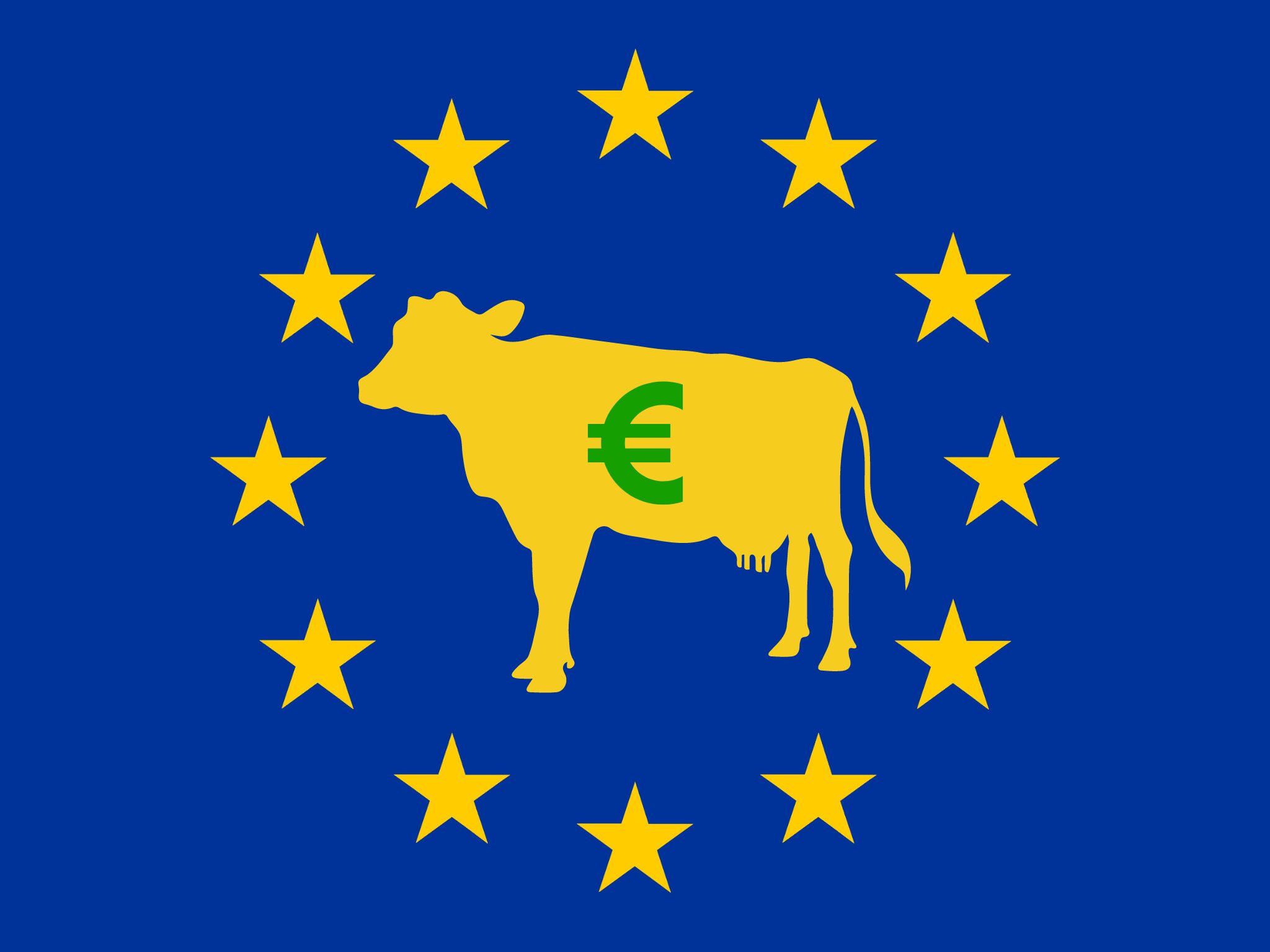
5 Mins Read
Soon to be the EU’s farming commissioner, Cristophe Hansen has called meat “part of a balanced diet”, but admitted that we’re “massively underproducing” plant proteins – not in the way you think, though.
In three weeks, Cristophe Hansen will be confirmed as the European Commission’s new agricultural commissioner. He will have the unenviable task of helping president Ursula von der Leyen’s promise to deliver an agrifood roadmap within the first 100 days of her new mandate.
But in his confirmation hearing on Monday, Hansen appeared to toe the line between cosying up with the livestock lobby and moving the EU towards a more sustainable food system, at times asserting contradictory statements that left more questions than answers.
For instance, he appealed to conservatives when he said lawmakers shouldn’t impose a cutback in meat consumption, but also courted green MEPs by noting the importance of ramping up the production of plant proteins.
His comments come weeks after lobby groups representing farmers asked the Commission to create an EU-wide action plan for plant-based foods by 2026, as part of the Strategic Dialogue on the Future of EU Agriculture. How will Hansen, a farmer’s son, fare in a political operation that has repeatedly failed to deliver on its green policies?
Hansen says it’s ‘tricky’ to impose what people eat

Anna Strolenberg, a Dutch MEP for the Greens, noted how the FAO, the WHO and the IPCC have stressed the importance of dietary shifts, and the Strategic Dialogue agreed with the societal consensus on the topic. “So science and society are clear, now the EU must take action,” she said. “Protein diversification is of strategic importance for the EU.”
She then posed her questions: “Will we bring forward an action plan for plant-based foods as proposed in the Strategic Dialogue? Will this action plan include elements to tackle both consumption and production? And lastly, will you commit to policy actions to reduce our dependency on imported feed?”
Hansen responded that his view of the Strategic Dialogue was a little different, but didn’t delve further into that. “It is very tricky to say and impose top-down who has to eat what,” he offered, suggesting that doing so would be “very dangerous” and create a bigger gulf between the EU and its citizens. “That is not how the European Union should work.”
The Luxembourger added that meat products are part of a balanced diet, but suggested that everything “needs to be consumed in moderation”. “My doctor told me to eat less red meat. That was medical advice to me,” he admitted.
But there was one thing he said he agreed with Strolenberg on. “We are heavily underproducing plant-based proteins in the European Union, and they have at least two benefits,” he said. “They are beneficial for the climate, because they store emissions and are in that sense already very important.”
However, this was a deliberate misdirection, given that the second “benefit” of plant protein he mentioned was to reduce the EU’s reliance on feed imports. So while Strolenberg was talking about plant-based foods for humans, Hansen banged on about producing more soybeans to feed animals, who would then be fed to humans.
“Strengthening the EU’s food security is becoming central for the European Commission and will be a top priority for this new term. A key element of this issue revolves around protein, as the EU is highly dependent on imports for protein feed for its animal agriculture,” Soizic Larcher, EU policy officer at food awareness group ProVeg International, told Green Queen.
“The Commission recently acknowledged that policy and public debate on the EU protein sector needs a comprehensive approach, covering EU plant protein production, supply, and the broader challenges and opportunities in food and feed demand,” she added.
“ProVeg sees the need for a food systems approach that balances sector-wide needs and synergies, focusing on farmers and considering both human food and animal feed demand to find new efficiencies.” Larcher continued, outlining that ProVeg supports the need to reduce dependence on feed imports, but as “part of a broader transformation of the food system” that aligns with the goal of further developing the plant protein sector.
Shifting political environment impeding the protein transition

Much of the hearing was about agriculture rather than food, but even then, Hansen didn’t commit to a sweeping change towards the EU’s approach to sustainable farming. He dodged a question about whether the EU should maintain or even increase its farming subsidies for red meat, merely stating that he was optimistic about the Commission’s budget for food promotion in the next financial framework.
The problem is, the EU spends nearly 30% of its Common Agriculture Policy (CAP) budget on agriculture – but 80% of this is directed to livestock farming (and 44% alone goes to feed crops).
This is at least four times higher than what the EU invests in plant-based farming, despite animal proteins providing only 35% of calories and 65% of proteins in the EU, and contributing to 84% of its agricultural emissions. And a recent investigation showed how these subsidies ultimately benefit some of the world’s richest people, at the expense of the farms that are supposed to profit from them.
In his written answers before the hearing, Hansen looked to promote organic farming as a way to greenify the EU’s farming sector. But he said the Commission wouldn’t publish a new framework for sustainable food systems: “Rather than new legislative proposals, we can achieve our objectives by better implementing and enforcing existing legislation while using incentives and new market-based tools to promote change.”
That would be fine if the EU had a good track record of putting its money where its mouth is on green policies. MEPs, working with lobby groups, have managed to stall Farm to Fork reforms, resist Green Deal legislations, and delay the promised ban on caged farming, which has now been put on hold indefinitely and led to a legal complaint against the EU. The CAP’s environmental controls were further weakened this year after intense lobbying efforts.
Hansen also indicated that it was important for the EU to update its protein strategy from 2018 to include plant protein needs more prominently. But he said the Strategic Dialogue report was “rather a vague formulation” and needed to be discussed in greater detail.
ProVeg’s Larcher said the organisation “advocates for a well-balanced plant-based diet” comprising plenty of whole foods. “With the current political environment leaning to the right, we increasingly hear these more conservative narratives and see resistance to recognise the need to transition towards more plant-based diets,” she outlined.
“Many people, including Mr Hansen himself, are aware of the value of reducing meat in their diet, but it will be essential to showcase the multiple benefits of this transition for the EU, for health, food security and the environment, so that it is translated into actual policies.”
The post Incoming EU Ag Chief Admits Plant Proteins Need Ramping Up – But for Livestock Feed appeared first on Green Queen.